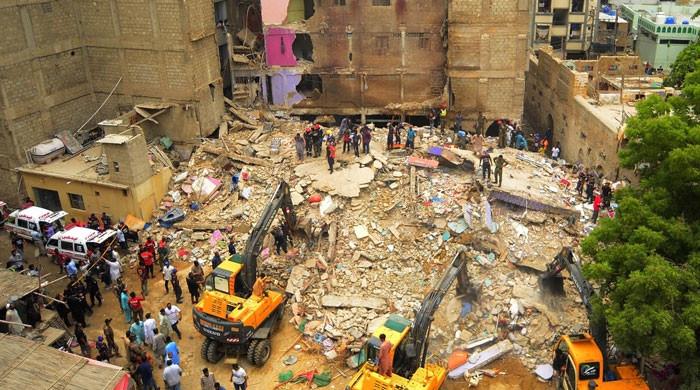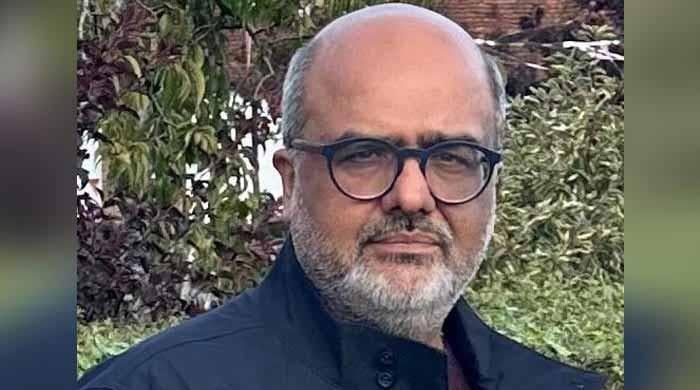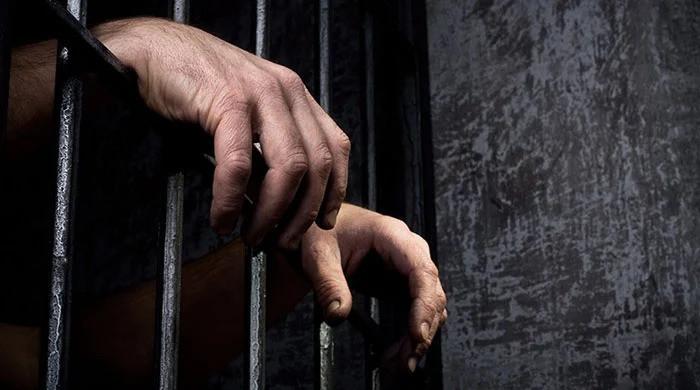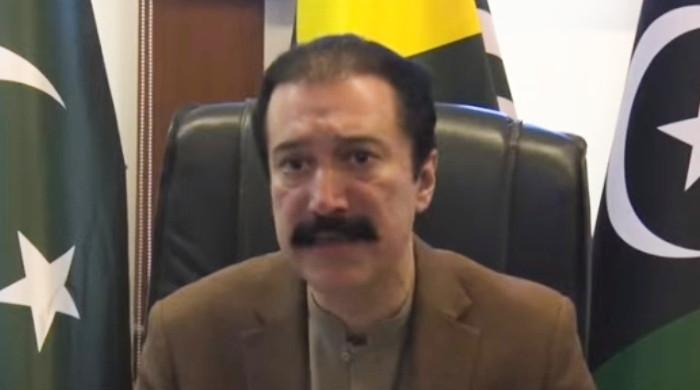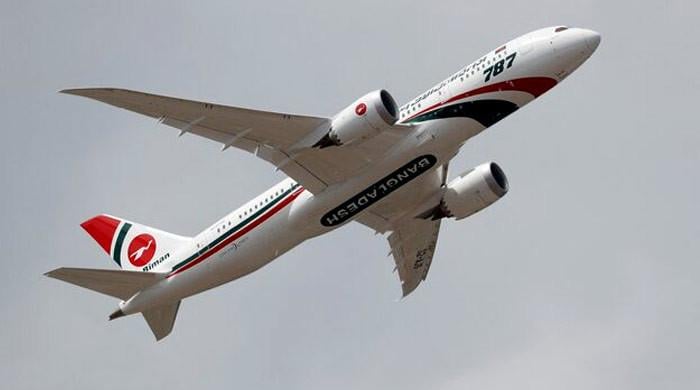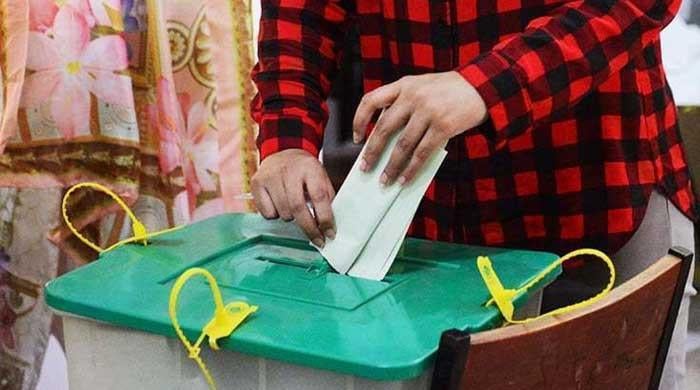Modi's meeting with Kashmiri leadership nothing but a 'drama': FM Qureshi
The meeting was a failed attempt to revive India's international image, says FM Qureshi
June 25, 2021
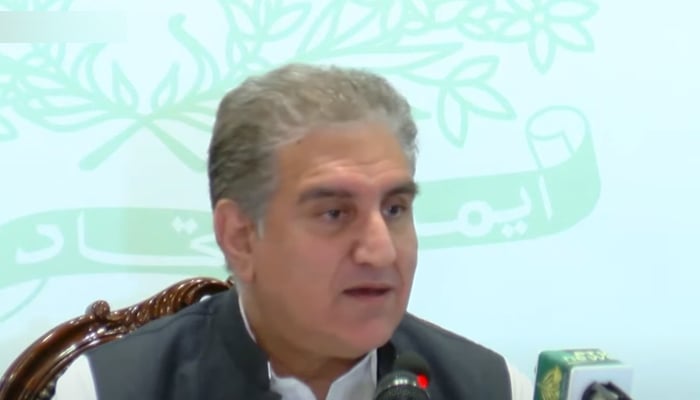
- Meeting a failed attempt to resuscitate India's image in front of international community, FM Qureshi says.
- "Yesterday's meeting was useless, pointless, and a failure which will bear no fruit."
- No backdoor diplomacy channels are being used to communicate with India, he says.
ISLAMABAD: Foreign Minister Shah Mahmood Qureshi said Friday Indian Prime Minister Narendra Modi's meeting with the Occupied Kashmir leadership was nothing but a "drama" to revive New Delhi's international image.
The talks on Thursday were the first between Modi and Kashmiri leaders since the government scrapped the Himalayan region's special status in 2019, detaining thousands of people and imposing a months-long lockdown.
The foreign minister, speaking to media in Islamabad, said the meeting was a "facade" and a "failed attempt to resuscitate India's image in front of the international community."
"In yesterday's meeting, 14 Kashmiri leaders were invited .... and the Kashmiri leadership had unanimously demanded India revoke the August 5 decision," FM Qureshi said.
Slamming the Modi-led regime, the foreign minister said the meeting — which was held for three-and-a-half hours — did not have a preset agenda.
"All Parties Hurriyat Conference was not invited to the meeting ... the Hurriyat leadership has always talked about the right to self-determination," the foreign minister said.
"In the APC (all parties conference), Modi admitted that there were differences between New Delhi and Occupied Kashmir," FM Qureshi said.
The foreign minister said it had been nearly two years since India revoked Occupied Kashmir's special status, adding that the Kashmiris were "in despair and were feeling ridiculed."
The foreign minister said the Kashmiri leadership had informed the Indian PM that more than 50% of the industries had shut down as a result of the restrictions imposed in the Himalayan region.
'Useless, pointless'
"The leadership demanded that the government compensate the losses incurred over the course of two years .... tourism in Occupied Kashmir took has been shattered. People did not only suffer monetary losses, but their mental health was also severely affected," he said.
The foreign minister said despite the two-year ordeal, the Kashmiri leadership did not blame anyone, but they put forward some demands, including the revival of human rights and the release of incarcerated leaders.
"These demands were put forward by those Kashmiri leaders who were a part of previous governments," he said, adding: "Yesterday's meeting was useless, pointless, and a failure which will bear no fruit."
Regional issues
Speaking on regional issues, the foreign minister said he was unaware of United Nations' troops being deployed in Afghanistan, and that it was too early to comment on Turkey's forces being stationed at Kabul Airport.
The foreign minister said if conditions in Afghanistan go back to like they were in the 1990s, then it will only hurt the Afghans.
Replying to a question on rising violence in Afghanistan, he said Pakistan was concerned about the situation where several elements and “spoilers” could be held responsible who did not want to see peace and stability in Afghanistan.
He said Pakistan had been advocating and facilitating the Afghan peace process with its role of “becoming a part of the solution and not the problem”.
“A negotiated political settlement in Afghanistan is in everybody’s Interest and the best way forward,” he said.
Qureshi emphasised that the Afghans, including the government and Taliban, needed to sit together.
“Whatever the outcome evolves out of their negotiations, Pakistan would respect that,” he said and added that “we will remain the partners of peace and not conflict”.
On the blame game against Pakistan ahead of the meeting between US President Joe Biden and Afghan President Ashraf Ghani, he said: “They [Afghan government representatives] can say whatever they want, but the US knows Pakistan’s role very well."
The foreign minister said peace and stability in Afghanistan would ensure development and regional connectivity. However, in case of a setback, Afghans would suffer the most, he added.
"No backdoor diplomacy channels are being used to communicate with India, however, intermittent communications are made on intelligence-level to discuss regional issues," he said.
The meeting in New Delhi
Modi, a day earlier, had met the leadership of the Occupied Kashmir in New Delhi and said that elections would be held after the region's constituencies were reconfigured following the revocation of its semi-autonomous statehood.
Kashmiri leaders have long demanded the restoration of their semi-autonomy and for elections to be held, but India has been working to re-adjust some assembly and parliamentary constituencies there under a process known as "delimitation".
Modi later took to Twitter to reiterate the line he had taken in the roughly three-hour talks in New Delhi.
"Delimitation has to happen at a quick pace so that polls can happen and J&K gets an elected Government that gives strength to J&K’s development trajectory," he said.
Regional leaders said they pressed their demand for restoration of statehood and limited autonomy at the talks.
"We told PM that we don't stand with what was done on 5th Aug 2019," said Omar Abdullah, leader of the regional party National Conference. "We're not ready to accept it, but we won't take the law into our hands, we will fight this in court."
As well as revoking the region's statehood and semi-autonomy in August 2019, India split the only Muslim-majority state into two federally administered territories. It said the changes were needed to spur development in a region where an "armed insurgency has raged for decades against New Delhi's rule."
Protests, lockdown
The shock decision to revoke the region's statehood and semi-autonomy triggered protests by thousands of people and was criticised by local leaders who said they were never consulted.
Ahead of that move, India had also locked down the heavily militarised Kashmir valley and placed strict curbs on movement and telecoms, snapping most mobile telephone and internet links for weeks. Even 18 months later, high-speed mobile internet had been only partially restored, and local leaders complain about an erosion of civil rights.
"I spoke about the pain and anger and frustration among the people of [Indian Occupied] Jammu and Kashmir since August 2019, about how they feel humiliated," said Mehbooba Mufti, leader of the regional People's Democratic Party.
"I said people of IOJ&K are facing a lot of problems ... even if they breathe loudly they are jailed."
Many people in Kashmir have voiced criticism of "delimitation", fearing it is aimed at tilting the balance of power in the region toward Hindu leaders.
Nisar Ahmad, a university student in Kashmir's main city of Srinagar, said he didn't have high hopes from Wednesday's meeting.
"They are not going to reverse what they did," Ahmad said.




